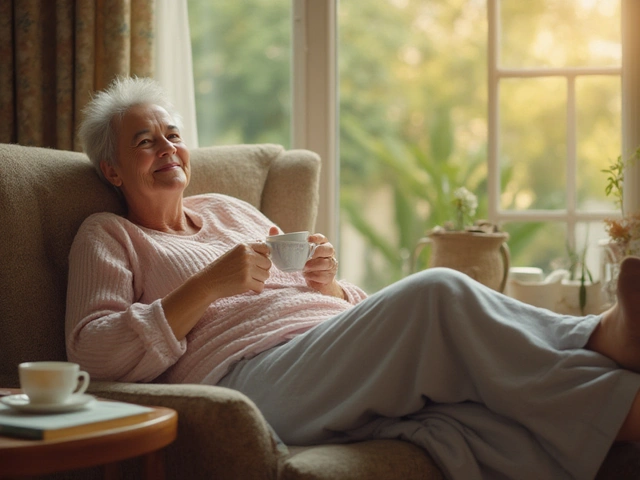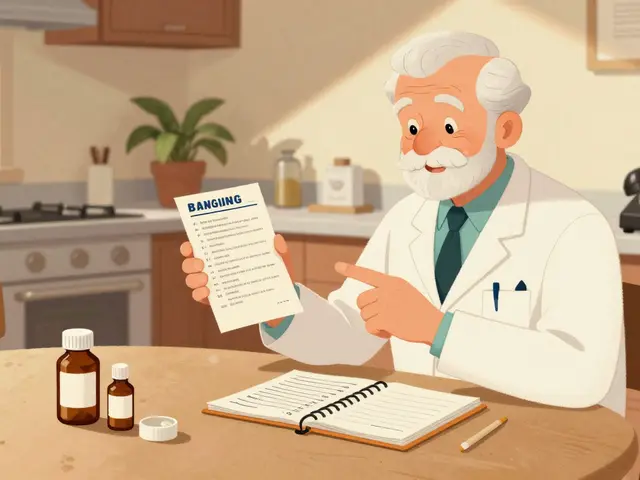Introduction to Pneumonia and Seasonal Risks
As the seasons change, so do the risks of contracting numerous diseases, one of which is pneumonia. As a severe lung infection, pneumonia is caused by bacteria, viruses, or fungi, and can affect anyone irrespective of their age or health condition. However, the risk of contracting this disease tends to increase during specific seasons, which is why it's crucial to understand these seasonal risks and take necessary precautions.
Understanding Pneumonia
Before diving into the link between pneumonia and the weather, it's essential to understand what pneumonia is. The disease primarily impacts the lungs, leading to inflammation of the air sacs, also known as alveoli. When these sacs fill with fluid or pus, it leads to symptoms such as cough with phlegm or pus, fever, chills, and difficulty in breathing. While pneumonia can be mild, and often clears up in two to three weeks, it can also be severe and life-threatening, particularly for infants, older adults, and people with weakened immune systems.
The Role of Weather in Pneumonia Occurrence
While pneumonia can occur at any time of the year, studies have shown that it is more prevalent during colder months. Cold and flu season typically leads to an increase in the number of pneumonia cases. This is because our immune systems can be weakened by colder temperatures, making us more susceptible to infections. Moreover, cold weather forces people to stay indoors more often, thereby increasing the chances of the spread of bacteria and viruses that cause pneumonia.
Preventing Pneumonia During High-Risk Seasons
Understanding the increased risk of pneumonia during certain seasons allows us to take appropriate preventive measures. These include receiving vaccinations, practicing good hygiene, and maintaining a healthy lifestyle. Vaccines can help protect against some of the bacteria and viruses that cause pneumonia. Washing hands regularly, avoiding close contact with sick individuals, and cleaning frequently touched surfaces can also help prevent the spread of germs. Additionally, eating a balanced diet, exercising regularly, and getting enough sleep can boost your immune system, potentially reducing your risk of getting pneumonia.
Recognizing the Symptoms and Seeking Timely Treatment
Recognizing the symptoms of pneumonia and seeking timely treatment is crucial, especially during high-risk seasons. Symptoms can vary from mild to severe, and can include chest pain, fatigue, fever, and difficulty in breathing. If you or a loved one experiences these symptoms, it's important to seek medical attention as soon as possible. Early treatment not only improves the chances of recovery, but it also reduces the risk of complications. Remember, pneumonia is a serious condition that can be life-threatening, especially if left untreated or not treated promptly.
In conclusion, understanding the seasonal risks associated with pneumonia can be a significant step towards preventing this disease. By staying informed and taking necessary precautions, we can protect ourselves and our loved ones from this potentially serious condition.






Jasmine Kara
14 July 2023 - 06:43 AM
i swear every time it gets cold my lungs feel like they’re full of wet sand. not fun. got pneumonia last winter and i still hate coughing into a tissue like a drama queen.
Richie Lasit
14 July 2023 - 17:23 PM
you’re not alone, jasmine. i’ve been pushing my grandma to get her pneumonia shot for months now. she says ‘i’ve lived this long, why change?’ but seriously, it’s one of the easiest ways to avoid a hospital trip. stay warm, wash hands, and don’t be a hero-call the doc if you feel off.
arthur ball
16 July 2023 - 08:56 AM
bro. last year i thought i just had a bad cold. turned out i was coughing up a small ocean. ended up in the ER with oxygen tubes and a nurse who looked like she’d seen it all. don’t ignore that wet cough. it’s not ‘just a bug.’ your lungs aren’t a meme. get checked. get vaccinated. don’t be that guy who turns a two-week chill into a three-week nightmare. seriously. i’m not even kidding. i still dream about the hospital soup.
Harrison Dearing
17 July 2023 - 11:19 AM
why are we even talking about this? 🤦♂️ if you’re not dead by 60, you’re doing something wrong. pneumonia’s just nature’s way of pruning the weak. get a vaccine? nah. just don’t be lazy. stay inside. don’t touch doorknobs. pray. that’s it. 😇
Justice Ward
17 July 2023 - 11:59 AM
man, i’ve seen this play out in my family-grandma’s cough turning into a storm, uncle’s fever that wouldn’t quit, my cousin’s ER visit on Christmas Eve. it’s not just ‘getting sick.’ it’s like your body’s fighting a war in slow motion. the vaccine? it’s not magic, but it’s like putting on a bulletproof vest before walking into a hailstorm. please, if you can get it, do it. not for the system-for the people who’ll be holding your hand when you can’t breathe.
bhuvanesh kankani
17 July 2023 - 20:54 PM
In my village in India, we have a saying: ‘Winter is the thief of breath.’ Many elders, even without modern medicine, know to keep the chest wrapped, drink warm turmeric water, and avoid sudden drafts. Modern science confirms what tradition has long known: prevention is gentler than cure. I urge all readers to honor both wisdom and medicine-stay warm, stay informed, and protect those who cannot protect themselves.